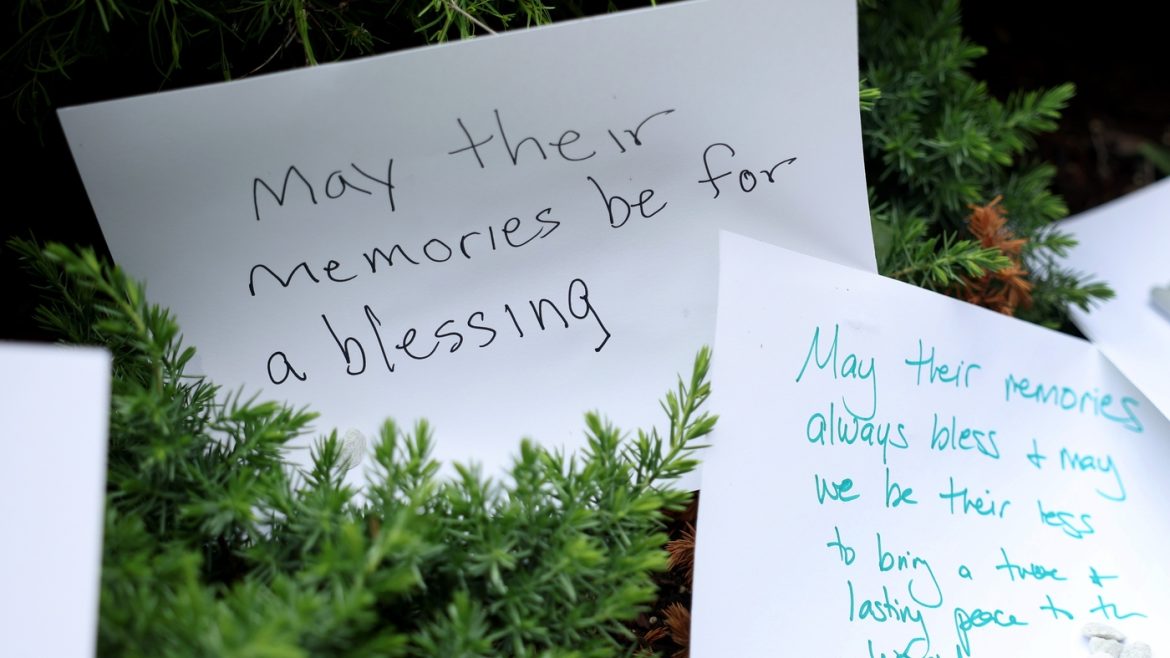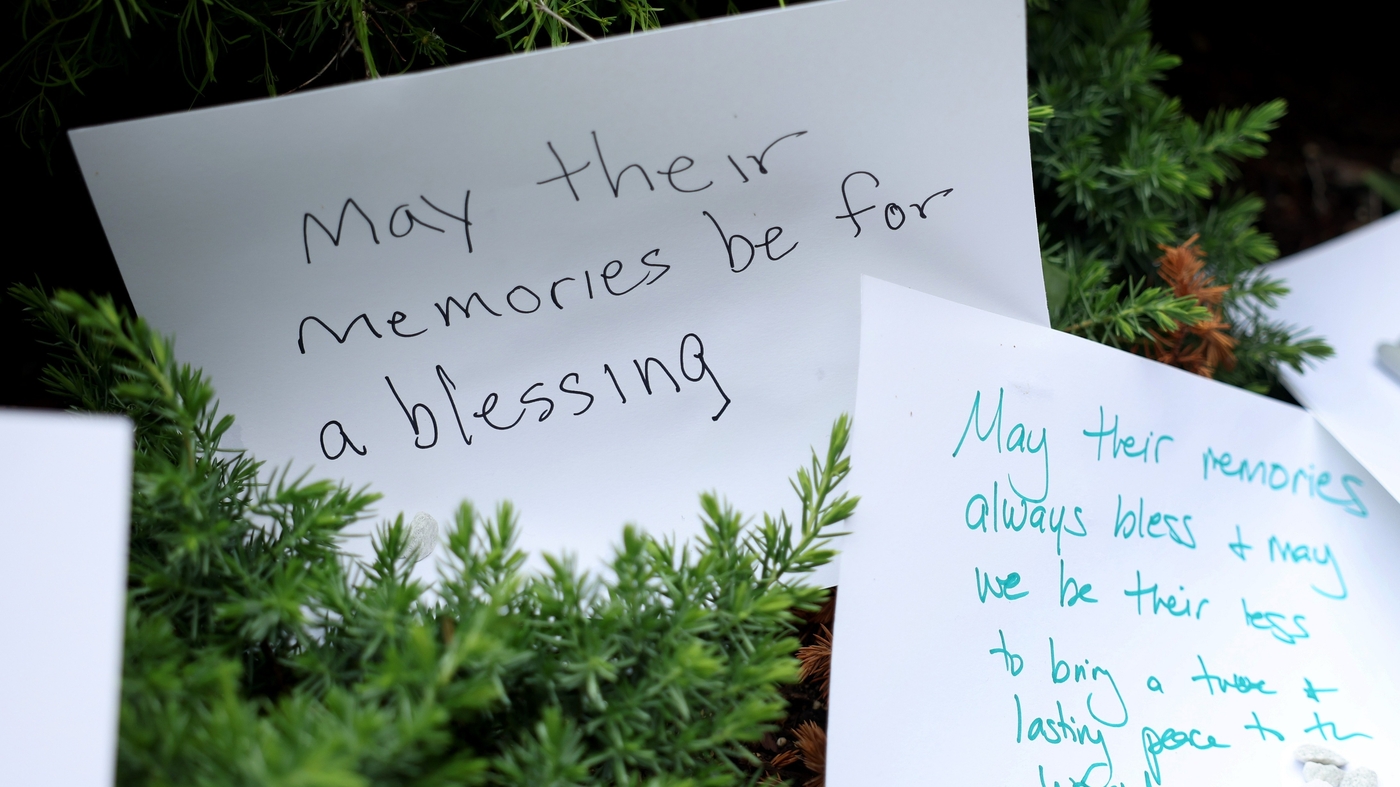The recent fatal shooting of two Israeli embassy staffers in Washington, D.C., has sharply brought to light the disturbing surge in antisemitic violence, casting a shadow not only on the safety of Jewish and Israeli communities but also on the broader global discourse around hate-driven terror. This incident, unfolding outside the Capital Jewish Museum as the victims were leaving an event, embodies the complex intersections of political conflict, bigotry, and terrorism.
The Incident: A Tragic Loss in the Heart of the U.S. Capital
On a Wednesday night, Yaron Lischinsky and Sarah Milgrim, a young couple both employed by the Israeli embassy, were fatally shot in downtown Washington, D.C., outside the Capitol Jewish Museum. These two individuals, young professionals with a promising future—including plans to become engaged—were inexplicably targeted as they exited a Jewish advocacy event. The suspect, who was promptly apprehended, reportedly shouted “Free, free Palestine” during the attack and after being detained, underlining a politically motivated dimension to the violence.
The suspect has since been charged with multiple counts of murder, with federal authorities treating the case as a hate crime and an act of terrorism. The Joint Terrorism Task Force of the FBI is leading the investigation, reflecting the gravity with which the U.S. government views the shooting. There are considerations that the accused faces the death penalty, emphasizing the legal severity of the incident.
Contextualizing the Rise in Antisemitism
This shooting did not occur in isolation but amid an alarming rise in antisemitic incidents both in the United States and globally. Since events relating to the Israel-Gaza conflict intensified, particularly after Hamas’ attack in October 2024, there has been a marked increase in incidents targeting Jewish individuals, synagogues, and organizations.
Israeli and U.S. officials alike have pointed to this surge as part of a broader pattern of increasing hate crimes against Jewish communities. Prime Minister Benjamin Netanyahu and other Israeli leaders described the murders as “appalling” acts fuelled by long-standing antisemitic tropes and blood libels widely propagated against Israel. Critically, this wave of antisemitism has paralleled escalating political tensions surrounding Israel and Gaza, complicating national security and inter-community relations.
The killing reignites deep anxieties within Israeli society and among Jewish communities worldwide regarding their safety in public spaces and at diplomatic institutions. It stresses a shared sentiment that global hostility toward Jews may now manifest in violent extremism with terrifying consequences.
Global and Political Responses
The murder of Lischinsky and Milgrim drew immediate condemnation across political and diplomatic channels. U.S. government officials, including local law enforcement and federal authorities, assured the public of intensified security measures around Jewish institutions and embassies. Statements from leaders underscored the commitment to eradicating such hate crimes and brought attention to the necessity of combating antisemitism decisively.
Israeli officials, for their part, have pointed to these killings as evidence of a growing “antisemitic terror” that transcends borders. They have raised concerns about antisemitic incitement occurring not only in violent actions but also through inflammatory rhetoric within other countries, including parts of Europe. Prime Minister Netanyahu called for a recognition of the brutal nature of these acts, categorizing them as consequences of longstanding hatred fueled by “blood libels” against Israel.
Amid the grief and outrage, there has also been discourse about the broader societal and ideological environment that fosters such hatred. Discussions have touched on the role of misinformation, extremist ideologies, and the impact of geopolitical conflicts on domestic hate crimes.
The Human Dimension: Personal Tragedy and Community Mourning
Beyond the political implications, the incident is a profoundly human tragedy. Yaron Lischinsky and Sarah Milgrim were described as devoted young professionals who embodied hope and interconnectedness between two nations. Milgrim had planned to meet Lischinsky’s family in Jerusalem for the first time, signifying a joyful step in their lives tragically cut short.
The Jewish community in Washington, D.C., and beyond has expressed deep sorrow and strengthened calls for solidarity in the face of increasing threats. The event at the Capitol Jewish Museum, meant to foster advocacy and dialogue, concluded in horror, transforming a normal evening into a somber reminder of vulnerability.
Their deaths serve as a wake-up call to the enduring realities faced by Jewish diplomats and community members in a world where hate crimes remain a persistent threat to peace and safety.
Broader Implications: Security, Diplomacy, and the Fight Against Hate
This deadly shooting incident must be understood not only as an isolated act of violence but as a symptom of larger challenges in ensuring the safety of diplomatic personnel and minority communities vulnerable to hate crimes. It calls for enhanced intelligence efforts, heightened security protocols at Jewish and diplomatic institutions, and innovative policy strategies to counter extremism.
Moreover, it highlights the complexities governments face in balancing issues of free expression with the need to contain and stamp out hateful incitement. The consequences of geopolitical conflicts spilling over into violent acts in other countries necessitate refined international cooperation.
The investigation’s progress and the legal outcome in this case will also influence how similar acts are classified, prosecuted, and prevented in the future—setting potentially precedent for stronger counterterrorism efforts specifically targeting antisemitic violence.
Conclusion: A Rallying Cry Against Rising Antisemitic Violence
The tragic killing of two young Israeli embassy staffers in Washington, D.C., fuels a somber reflection on the toxic undercurrents of hatred fueling antisemitism worldwide today. Their lives and promising futures were stolen in an act of terror rooted in deep-seated prejudice and political animosity.
This incident reaffirms the urgent necessity for vigilant security measures, cohesive political will, and societal awareness to counter the rise of antisemitic hate crimes. It underscores the painful truth that hate remains a lethal force capable of crossing national boundaries and devastating lives.
As the investigation unfolds and communities mourn this devastating loss, their memory serves to galvanize increased efforts to build a safer, more tolerant world—where diplomacy and cultural exchange are protected from violent extremism and where the scourge of antisemitism no longer dictates the lives of innocent people.


